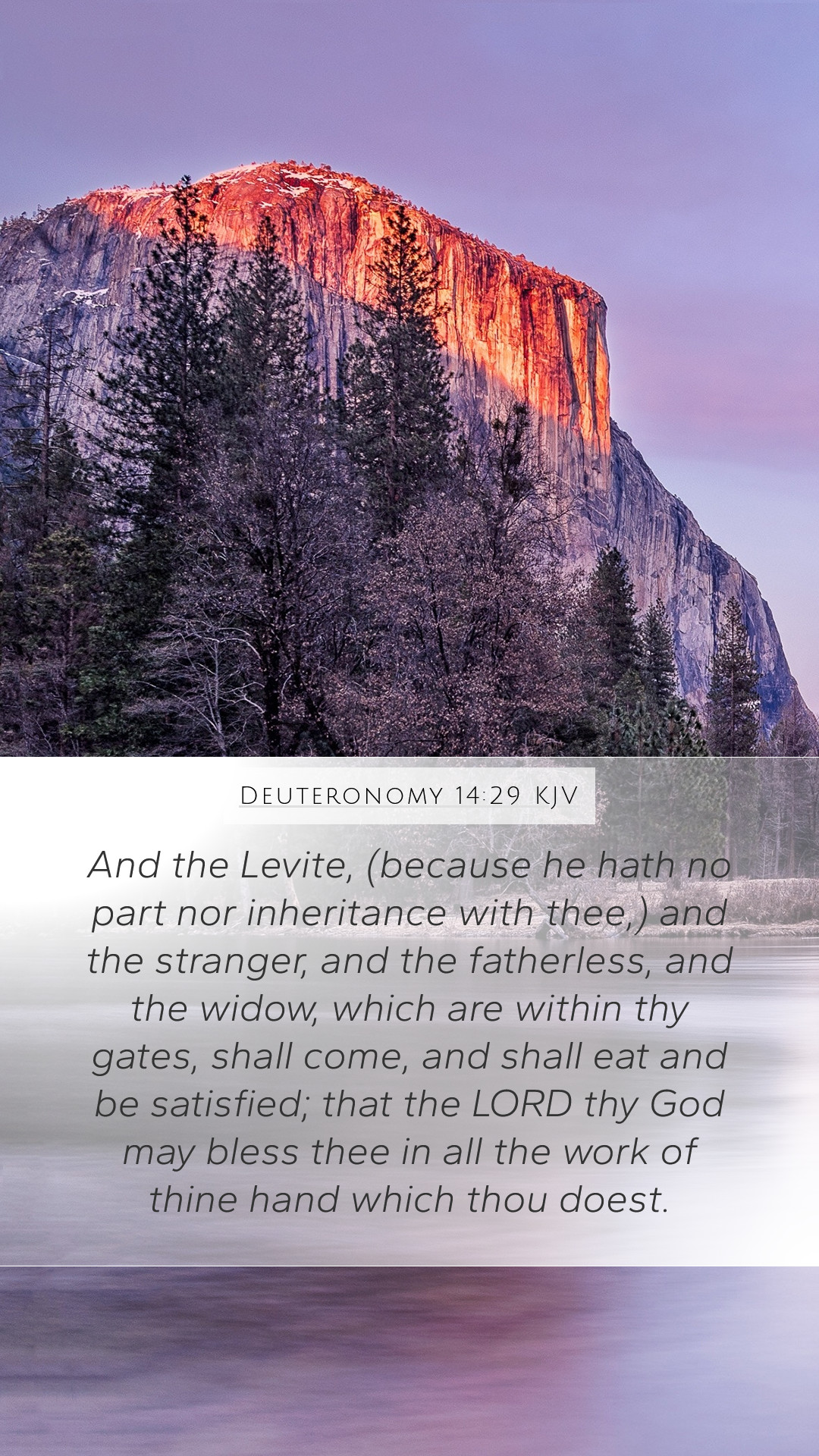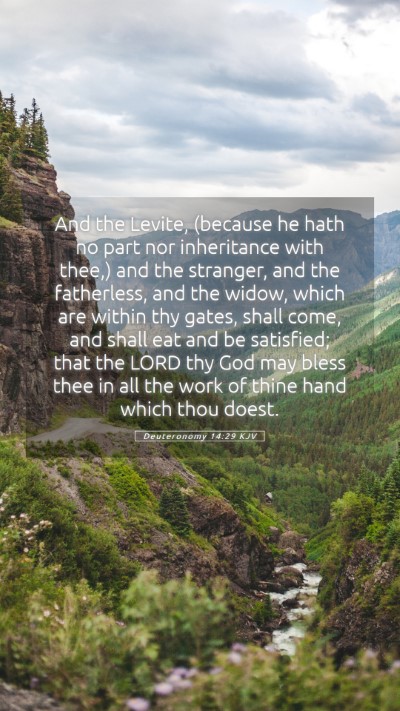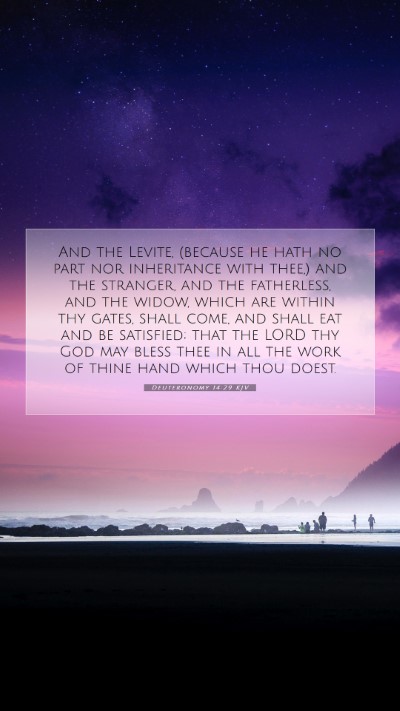Understanding Deuteronomy 14:29
This verse offers profound insights into the principles surrounding charitable giving and social responsibility within the Israelite community. Here, we will explore the meaning of this verse through the lens of various public domain commentaries.
Bible Verse Context
Deuteronomy 14:29 states:
"And the Levite, because he has no portion nor inheritance with you, and the stranger, and the fatherless, and the widow, who are within your gates, shall come and eat and be satisfied, that the Lord your God may bless you in all the work of your hand which you do."
Summary of Meanings
This verse emphasizes the importance of aiding those in need, specifically mentioning Levites, strangers, orphans, and widows. By ensuring that these vulnerable groups are cared for, the people of Israel fulfil their covenant responsibilities, attracting divine blessings upon their endeavors.
Detailed Exegesis
-
Matthew Henry's Commentary:
Henry elucidates that the Levites, who serve God in the temple, are entirely dependent on the offerings of the people, as they do not possess land. This verse not only reinforces social duty but also highlights a vital principle: benevolence towards the underprivileged is directly tied to divine approval.
-
Albert Barnes' Commentary:
Barnes interprets the 'stranger' as a sojourner among the Israelites who might not have the means to survive independently. He contends that this inclusivity is crucial for fostering a community bound by compassion and charity. The act of sharing resources with those less fortunate is viewed as a divine expectation.
-
Adam Clarke's Commentary:
Clarke notes that the blessings mentioned here are contingent upon the people’s recognition of their economic responsibilities toward marginalized individuals. He asserts that such generosity facilitates a society that honors God's commandments and reflects His love through tangible action.
Theological Implications
From a theological standpoint, Deuteronomy 14:29 illustrates the character of God as a provider not only for the hopeful but also for the helpless. It outlines a societal structure that encourages communal support and highlights God’s promise of abundance when duties of kindness are met.
Application in Daily Life
The application of this verse in modern contexts echoes the significance of charity, social justice, and community responsibility. It encourages individuals and church groups to engage in ministries and outreach programs that seek to uplift those who are in disadvantaged positions.
Related Bible Verses
- Exodus 22:22: "You shall not afflict any widow or fatherless child." - A similar command emphasizing care for vulnerable groups.
- Psalms 146:9: "The Lord protects the strangers; He supports the fatherless and the widow." - Reinforcing God's heart for the oppressed.
- Isaiah 10:1-2: "Woe to those who enact evil statutes..." - Warning against injustices that neglect the needy.
- James 1:27: "Pure and undefiled religion before God is this: to visit orphans and widows in their trouble..." - A New Testament reiteration of this Old Testament principle.
- Luke 14:13: "But when you give a feast, invite the poor, the maimed, the lame, the blind." - Jesus’ teachings on generosity towards the marginalized.
Conclusion
In conclusion, Deuteronomy 14:29 serves as a compelling call to action for individuals and communities to actively participate in the welfare of the less fortunate, whereby fulfilling God’s commands and receiving His blessings. This verse encapsulates the essence of Biblical charity and community ethics, urging believers to reflect God's love through actionable kindness.
Study Resources
For deeper insights into Scripture, consider using various Bible study tools or exploring detailed biblical exegesis related to Deuteronomy and its thematic implications. Engaging with Bible study groups or online Bible study resources can enhance understanding and offer communal support in interpreting these vital passages.
Final Thoughts
As we reflect on Deuteronomy 14:29, let us ponder how we can implement its teachings in our daily lives, ensuring that we contribute to a system that uplifts the vulnerable and responds to God's call for justice and love.


